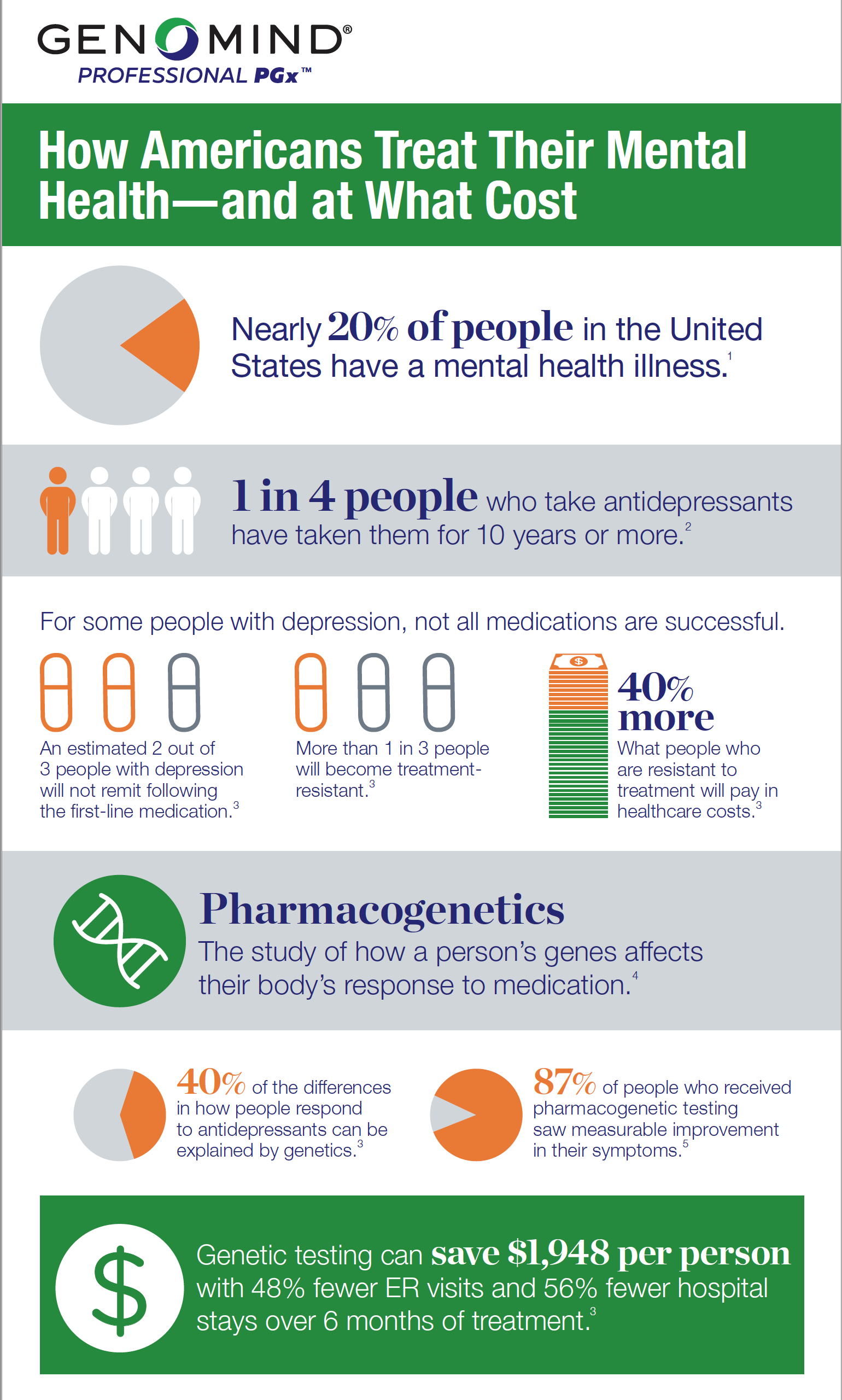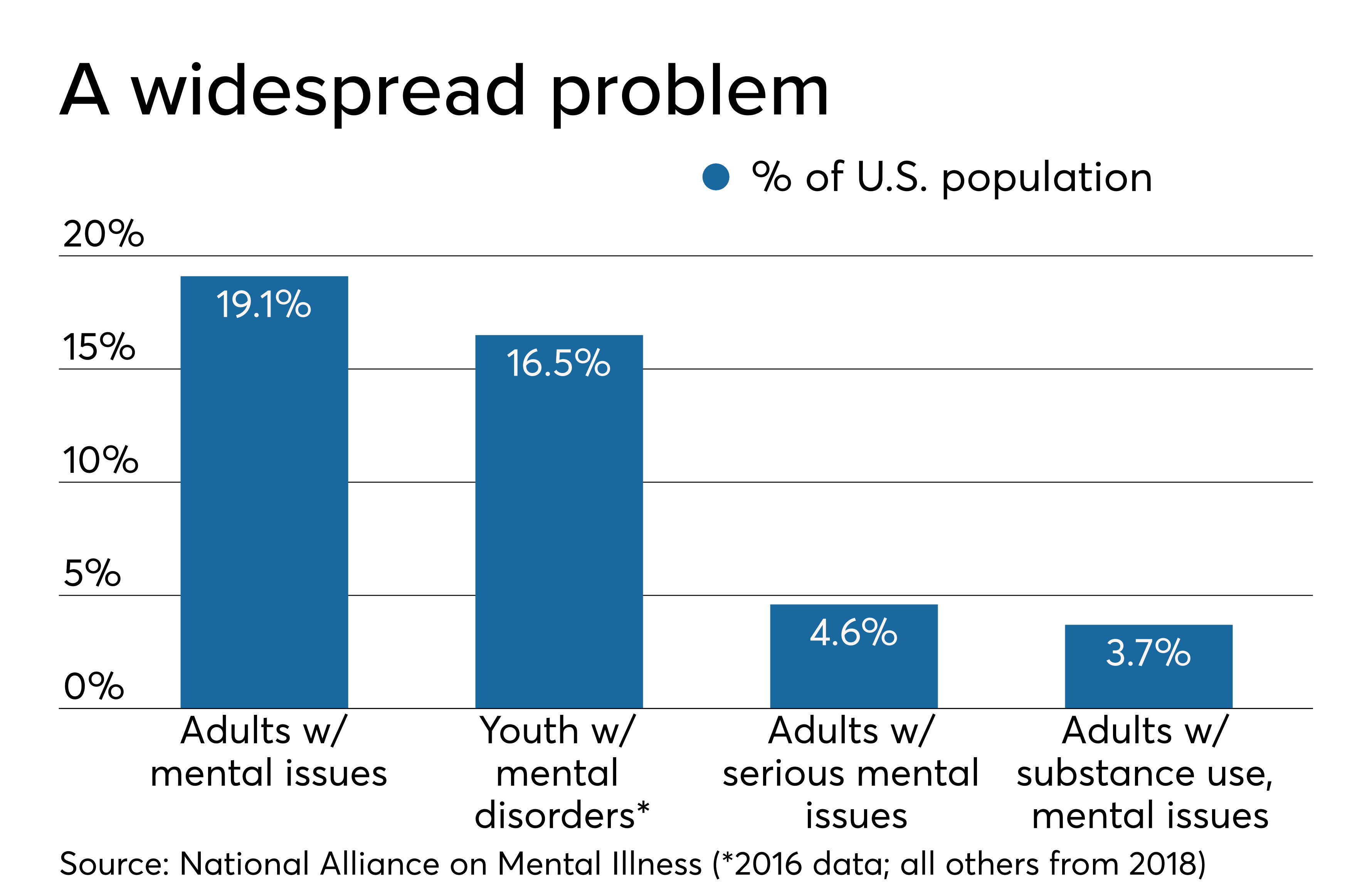Table of ContentsA Biased View of Which Of The Following Is Not A Mental Health Professional?Examine This Report about What Is Outpatient Mental HealthHow How To Become A Mental Health Therapist can Save You Time, Stress, and Money.
Psychological health conditions such as tension, depression, and stress and anxiety might establish due to underlying, life-altering physical illness, such as cancer, diabetes, and chronic pain. The most typical kinds of mental disorder are as follows: According to the Stress And Anxiety and Anxiety Association of America, anxiety conditions are the most typical type of psychological health problem.
A lot of individuals with an anxiety condition will attempt to prevent direct exposure to whatever activates their stress and anxiety. Examples of stress and anxiety conditions include: The American Psychiatric Association define GAD as out of proportion concern that interferes with everyday living. Individuals might likewise experience physical signs, includingrestlessnessfatiguetense musclesinterrupted sleepA bout of anxiety symptoms does not necessarily need a specific trigger in individuals with GAD - how to take a mental health day.

A person with GAD may sometimes feel anxiety without any trigger at all. Individuals with a panic attack experience regular panic attacks, which include unexpected, overwhelming terror or a sense of impending catastrophe and death. There are various types of phobia: These might involve a disproportionate fear of specific things, situations, or animals.
Find out more about basic phobias here. Sometimes understood as social anxiety, this is a fear of going through the judgment of others. Individuals with social fear often restrict their direct exposure to social environments. Discover more here. This term refers to a worry of scenarios in which escaping might be tough, such as remaining in an elevator or moving train.
Check out all about agoraphobia here.Phobias are deeply individual, and doctors do not know every type. There could be countless fears, and what might seem uncommon to someone may be an extreme problem that dominates every day life for another. People with OCD have fixations and compulsions. To put it simply, they experience constant, demanding ideas and an effective urge to perform recurring acts, such as hand cleaning.
Throughout this kind of event, the individual thinks that their life or other individuals's lives are in threat. They might feel scared or that they have no control over what is happening. These experiences of trauma and worry may then contribute to PTSD.People may also refer to state of mind conditions as affective conditions or depressive conditions.
Some Known Questions About How Social Media Affects Mental Health.
Examples of mood disorders consist of: A specific with significant anxiety experiences a consistent low state of mind and dislikes activities and occasions that they formerly enjoyed. They can feel prolonged periods of unhappiness or extreme unhappiness. A person with bipolar affective disorder experiences uncommon modifications in their mood, energy levels, levels of activity, and ability to continue with life.

Find out more about the different kinds of bipolar here. Minimized daylight activates during the fall, winter season, and early spring months activate this type of significant depression. It is most typical in nations far from the equator. Discover more about UNFORTUNATE here.Mental health authorities are still trying to figure out whether schizophrenia is a single disorder or a group of associated illnesses. Signs of schizophrenia usually develop between the ages of 16 and 30 years, according to the NIMH. The person willhave ideas that appear fragmented, and they might also find it hard to process details. Schizophrenia has negative and favorable signs. Positive symptoms include delusions, believed conditions, and hallucinations. Unfavorable symptoms consist of withdrawal, absence of inspiration, and a flat or unsuitable mood. However, people need to look out for the following as possible signs of.
a psychological health disorder: withdrawing from buddies, household, and colleaguesavoiding activities that they would generally enjoysleeping excessive or too littleeating too much or too littlefeeling hopelesshaving regularly low energyusing mood-altering compounds, including alcohol and nicotine, more frequentlydisplaying unfavorable emotionsbeing confusedbeing unable to finish everyday jobs, such as getting to work or cooking a mealhaving consistent ideas or memories that reappear regularlythinking of causing physical harm to themselves or othershearing voicesexperiencing delusionsThere are different methods for handling mental health issues. Some strategies or treatments are more successful in mix with others (which of the following mental health professionals is a licensed physician). A person living with a chronic mental condition may select.
different choices at numerous phases in their life. The specific needs to work carefully with a medical professional who can help them recognize their needs and supply them with appropriate treatment. Cognitive behavior modification, exposure therapy, and dialectical habits treatment are examples. Psychiatrists, psychologists,.
psychotherapists, and some medical care physicians bring out this type of treatment. It can help people understand the root of their mental health problem and start to work on more healthful idea patterns that support everyday living and lower the risk of isolation and self-harm. Although these can not treat mental conditions, some medications can improve signs and help an individual resume social interaction and a normal routine while they work on their psychological health. Some of these medications work by boosting the body's absorption of feel-good chemicals, such as serotonin, from the brain. Other drugs either improve the general levels of these chemicals or prevent their degradation or damage. Such modifications might include reducing alcohol intake, sleeping more, and eating a well balanced, healthy diet. People may need to take time far from work or solve concerns with individual relationships that may be triggering damage to their psychological health. People with conditions such as a stress and anxietyor depressive disorder might benefit from relaxation strategies, that include deep breathing, meditation, and mindfulness. If you know somebody at instant risk of self-harm, suicide, or injuring another person: Ask the difficult concern:" Are you considering suicide? "Listen to the individual without judgment. Call 911 or the regional emergency number, or.
text SPEAK WITH 741741 to communicate with an experienced crisis therapist. Stay with the person until expert help arrives. If you or someone you understand is having ideas of suicide, an avoidance hotline can assist. The National Suicide Prevention Lifeline is available 24 hr each day at 800-273-8255. During a crisis, people who are hard of hearing can call 800-799-4889. Psychological health includes our emotional, mental, and social wellness. It impacts how we think, feel, and act as we deal with life. It also helps determine how we deal with tension, relate to others, and choose. Psychological health is crucial.
The smart Trick of Which Of The Following Was Not Listed As A Barrier To Mental Health Treatment? That Nobody is Talking About
at every stage of life, from childhood and teenage years through adulthood and aging. They might be periodic or lasting. They can affect your capability to associate with others and work each day. Psychological disorders prevail; over half of all Americans will be identified with one at a long time in their life. However there are treatments. Individuals with psychological disorders can get much better, and numerous of them.
recover completely. For instance, mental conditions can raise your threat for physical health issue such as stroke, type 2 diabetes, and cardiovascular disease (what is a mental health assessment). There are various elements that can impact your mental health, consisting of Biological aspects, such as genes or brain chemistry Life experiences, such as trauma or abuse Household history of mental health issue Your.
lifestyle, such as diet, exercise, and compound use You can also affect your psychological health by taking actions to improve it, such as doing meditation, using relaxation methods, and practicing appreciation.